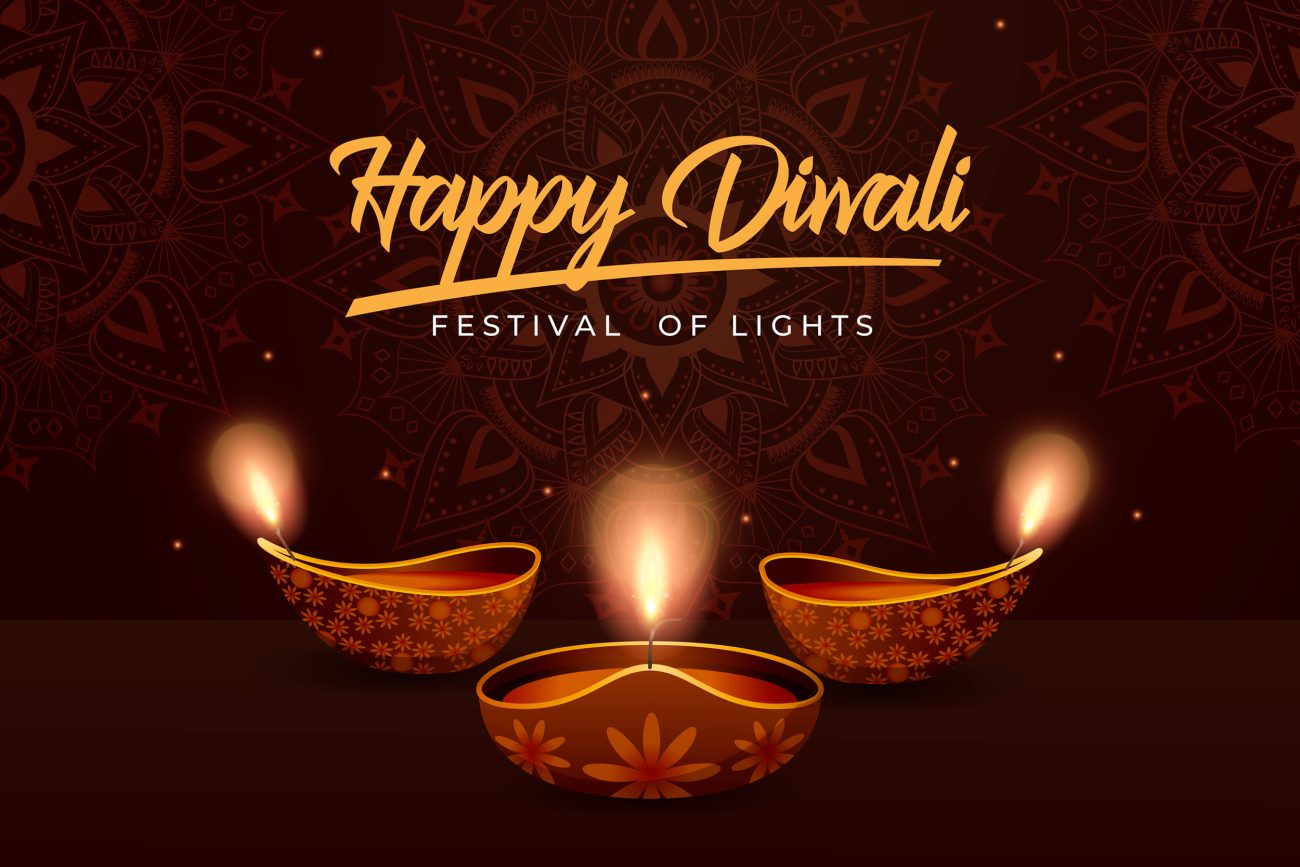The Festival of Lights: Diwali

Diwali, also known as the Festival of Lights, is one of the most significant and joyous festivals celebrated by Hindus, Jains, and Sikhs across the globe. It marks the triumph of good over evil, light over darkness, and knowledge over ignorance.
The Significance of Diwali:
Diwali commemorates the return of Lord Rama, the seventh avatar of Vishnu, to Ayodhya after 14 years of exile. It celebrates his victory over the demon king Ravana, symbolizing the triumph of good over evil.
The Five Days of Diwali:
Diwali is celebrated over five days, each with its own significance:
Dhanteras: This day is dedicated to Lakshmi, the goddess of wealth and prosperity. People purchase new items, especially gold and silver, to invite prosperity into their homes.
Choti Diwali: This day marks the beginning of Diwali celebrations. People light lamps and prepare for the main festival.
Diwali: This is the main day of the festival, when people light diyas (earthen lamps) and candles, decorate their homes with rangoli (colorful patterns), and burst firecrackers.
Annakut: This day is dedicated to Lord Krishna, and people offer him a variety of food items.
Bhai Dooj: This day is celebrated for the bond between brothers and sisters. Sisters apply tilak on their brothers’ foreheads and pray for their well-being.
The Rituals of Diwali:
The most important ritual of Diwali is the lighting of diyas. These lamps symbolize the light of knowledge and wisdom, dispelling the darkness of ignorance. People also decorate their homes with rangoli, which are intricate designs made on the floor using colored powders.
The Spirit of Diwali:
Diwali is a time for family, friends, and community. People visit each other’s homes, exchange gifts, and enjoy delicious sweets and snacks. The festival is also a time for reflection and renewal, as people make resolutions for the coming year.
The Global Reach of Diwali:
Diwali is celebrated not only in India but also by Indian communities around the world. It is a vibrant and colorful festival that brings people together in a spirit of joy, hope, and celebration.
Diwali: A Festival for Everyone:
Whether you are Hindu, Jain, Sikh, or simply someone who appreciates the beauty and joy of a festival, Diwali is a celebration that everyone can enjoy. It is a time to reflect on the importance of light over darkness, good over evil, and knowledge over ignorance. It is a time to celebrate life, hope, and new beginnings.
Diwali Delights: Food for the Festival
Diwali is a time for delicious food, and there are many traditional recipes that are perfect for celebrating this occasion.
Sweets: Diwali is known for its sweet treats. Some popular options include:
• Gulab Jamun: These are soft, spongy, and sweet dumplings made with milk solids and sugar syrup. [View Recipe]
• Barfi: These are milk fudge sweets that come in various flavors like pistachio, almond, and cashew. [View Recipe]
• Ladoo: These are sweet balls made with ingredients like gram flour, semolina, or nuts. [View Recipe]
• Rasmalai: These are soft cheese balls soaked in a sweet, creamy syrup. [View Recipe]
Savory Dishes: Diwali feasts also include savory dishes.
Some popular options include:
• Chaat: This is a popular street food that includes a variety of ingredients like potatoes, chickpeas, and chutneys.
• Samosas: These are crispy, savory pastries filled with potatoes and peas.
• Dosa: These are thin, crispy crepes made with rice and lentils.
• Idli: These are steamed rice cakes that are often served with chutney and sambar.
Here at Pungus Kitchen, we love celebrating Diwali with delicious food! We hope you enjoy these traditional recipes and have a happy and prosperous Diwali.
Happy Diwali to all our readers! May your celebrations be filled with light, joy, and prosperity!


You Might Also Like
Milk Feeding Safety Steps for Babies: Importance, Nutrients, and Practical Tips Every Parent Should Know
Sabarimala: Kerala’s Sacred Pilgrimage and Cultural Treasure.
Discover the Sabarimala pilgrimage in Kerala, exploring Lord Ayyappa, barefoot trekking, Irumudi...
Easter Celebrations: Traditions and Tasty Recipes.
Join us at Pungus Kitchen as we celebrate Easter with exciting traditions,...
Effective Weight Loss Diet: A Balanced Approach to Shedding Pounds.
A successful weight loss diet is all about balance — creating a...
Embracing Wellness with Yoga and Good Food
In today's fast-paced world, maintaining balance in both mind and body is...
International Women’s Day: Celebrating Strength, Inspiration, and the Art of Cooking.
Wishing all our readers a happy and empowering International Women’s Day! May...